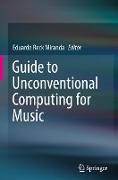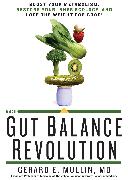- Start
- Guide to Unconventional Computing for Music
Guide to Unconventional Computing for Music
Angebote / Angebote:
This pioneering text/reference explores how innovative new modes of computation may provide exciting new directions for future developments in the music industry, guiding the reader through the latest research in this emerging, interdisciplinary field. This work includes coverage of electronic music compositions and performances that incorporate unconventional interfacing, hacking and circuit bending.Topics and features:Presents an introduction to the broader field of unconventional computing, and to the application of unconventional computing in music composition and performanceDiscusses initiatives involving biophysical electronic music, the work of self-styled silicon luthiers, and the intersection of music and quantum computingIntroduces the memristor, a new electronic component with the potential to revolutionize how computers are built in the futureReviews experiments and practical applications of biological memristors in musicDescribes IMUSIC, an unconventional tone-based programming language, which enables the programming of computers using musical phrasesIncludes review questions at the end of each chapterThis unique volume is recommended reading for students pursuing postgraduate studies in computer music and associated topics, and for undergraduate students in computing, engineering, and music seeking to understand the key issues in the field. Researchers in academia and the private sector will also find the work to be an invaluable source of information.Prof. Eduardo Reck Miranda is a composer and Professor in Computer Music at Plymouth University, UK, where he is Director of the Interdisciplinary Centre for Computer Music Research (ICCMR). His previous publications include the Springer titles Guide to Brain-Computer Music Interfacing and Guide to Computing for Expressive Music Performance.
Folgt in ca. 10 Arbeitstagen




